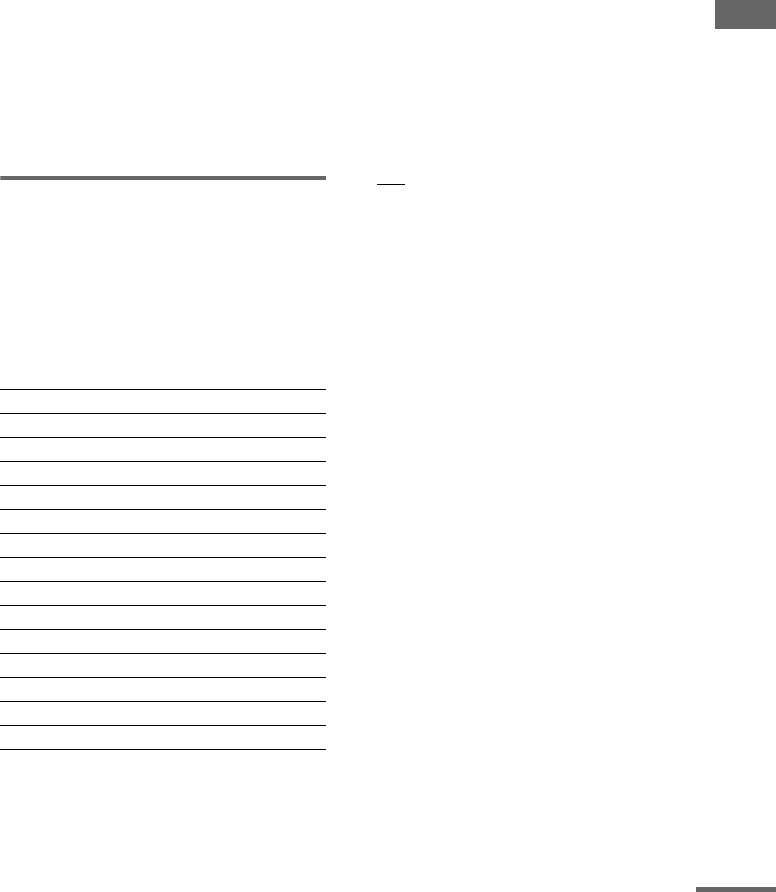
Advanced Adjustments and Settings
43
GB
Therefore, although it may result in a setting contrary
to the above explanation, we recommend that you
playback multi channel surround encoded software and
select the setting that provides a good sense of
spaciousness and that best succeeds in forming a
cohesive space between the surround sound from the
surround speakers and the sound of the front speakers.
If you are not sure which sounds best, select “BEHD”
and then use the speaker distance parameter and
speaker level adjustments to obtain proper balance.
xCROSS > XXX Hz
(Speaker crossover frequency)
Initial setting: 100 Hz
Lets you set the bass crossover frequency of speakers
set to “SMALL” in the SP. SET UP menu. You can
adjust the bass crossover frequency in three steps (60
Hz, 100 Hz, and 150 Hz).
Advanced LEVEL menu
parameters
When “MENU EXP.” is set to “ON”, all of the
following parameters are displayed and
adjustable.
See page 38 for the LEVEL menu adjustments.
Initial settings are underlined.
All LEVEL menu parameters
a)
Adjustable only when “MENU EXP.” is set to
“ON”.
b)
When surround back speaker is set to “SINGLE” or
“YES” (page 21).
c)
When surround back speaker is set to “DUAL”
(STR-DA2000ES only) (page 21).
xPHASE NOISE (Phase noise)
Initial setting: OFF
Lets you output the test tone sequentially from adjacent
speakers.
xPHASE AUDIO (Phase audio)
Initial setting: OFF
Lets you output the front 2 channel source sound
(instead of the test tone) sequentially from adjacent
speakers.
xD. COMP.
(Dynamic range compressor)
Lets you compress the dynamic range of the sound
track. This may be useful when you want to watch
movies at low volumes late at night.
•OFF
The dynamic range is not compressed.
•STD
The dynamic range is compressed as intended by the
recording engineer.
•MAX
The dynamic range is compressed dramatically.
Tip
Dynamic range compressor lets you compress the
dynamic range of the soundtrack based on the dynamic
range information included in the Dolby Digital signal.
“STD” is the standard setting, but it only enacts light
compression.
Therefore, we recommend using the “MAX” setting.
This greatly compresses the dynamic range and lets
you view movies late at night at low volumes. Unlike
analog limiters, the levels are predetermined and
provide a very natural compression.
Note
Dynamic range compression is possible with Dolby
Digital sources only.
TEST TONE
PHASE NOISE
a)
PHASE AUDIO
a)
BAL. L_I_R
CENTER XXX.X dB
SURR L XXX.X dB
SURR R XXX.X dB
SB XXX.X dB
b)
SB LEFT XXX.X dB
c)
SB RIGHT XXX.X dB
c)
SW XXX.X dB
MULTI 1 SW XXX dB
MULTI 2 SW XXX dB
D. COMP.
a)
EFFECT LEVEL XXX%
continued


















